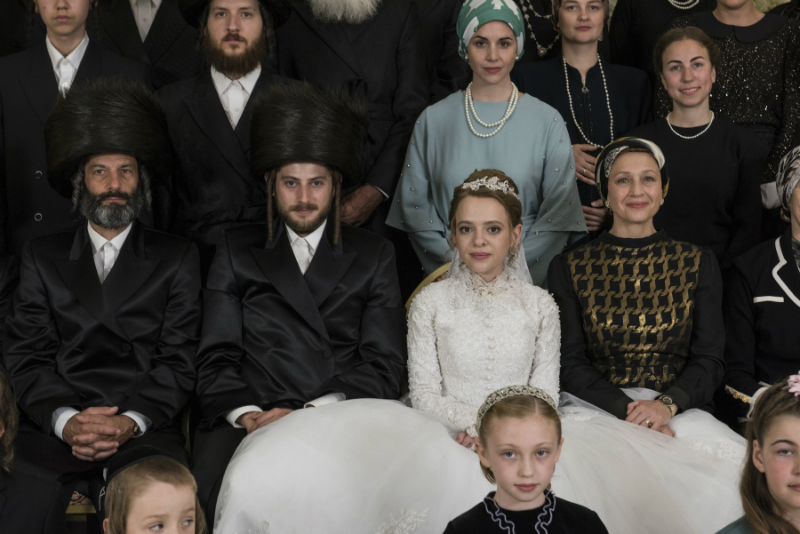It’s not surprising that most films and TV shows featuring Hasidic Jews paint them as villains. They’re not cartoonish moustache-twirlers per se, but usually religious zealots plotting to thwart the protagonist’s goal, which is invariably escaping their insular community. As a cultural critic, I’ve seen this tired tale more times than I care to count; you might call it the “Orthodexit” genre.
Hasidism is, in reality, a small and often racially targeted minority. In art, it becomes an oppressively patriarchal monolith. I understand the logic behind this depiction: the religious restrictions are overwhelming, while the stigma of leaving is horrifying. While secular liberal Jews like myself might point to proudly religious communities as proof of the success of western liberal democracy, anyone born into it, ironically, lacks the fundamental freedom of choice that the rest of us westerners appreciate.
To sum up this preamble, I’m never terribly excited to watch stories about rebels leaving ultra-Orthodoxy, and find the trope by this point a little rote.
Which brings me to Unorthodox, the new Netflix limited series (four, hour-long episodes), based on a true story, about a young woman’s escape from New York’s Satmar community into the arms of the freewheeling, beach-diving, music-playing international hipsters of Berlin.
The show, according to Netflix’s opaque charting system, is one of the most popular in Canada right now, and it’s also the first Netflix-produced show to be written mostly in Yiddish. (I suspect it’s because of the success of Shtisel, which is originally an Israeli program.)
In more ways that I anticipated, and which you can probably guess from my brief description, Unorthodox hits the usual Orthodexit beats. There are slow, long shots of protagonist Esty (Israeli actress Shira Haas, of Shtisel fame) staring out of car windows, fighting back tears. There are domineering black-hat men commanding her return. There are frightened Orthodox women with worried looks in their eyes. There is a scene in the first episode where Esty wades into a lake in Berlin, throws off her sheitel, and cries at her spiritual rebirth, as if dipping into a secular mikveh.
But here’s the thing: Unorthodox is also quite good. It’s exceptionally well paced, a credit to the co-creator duo of Anna Winger and Alexa Karolinski, who dwell on pivotal moments just long enough for them to resonate, but not so long that they get boring. (This is in fact a very fine line, especially in these sorts of stories.)
Haas is a masterful contortionist of facial and body language. The plot develops steadily, unfolding tantalizing revelations about Esty’s past throughout the series, rather than all at once, adding a much-needed air of mystery. It all works together quite nicely.
Part of me feels guilty about liking the show so much, because what makes it great TV is likely what would offend Hasidic viewers: it doesn’t paint them kindly. You don’t need to look further than Wikipedia to learn that the whole “escape to Berlin” plot is invented; the real-life woman, Deborah Feldman, didn’t move to Germany until years after her incremental exit from the community. Writing in Forward, former Satmar member Frieda Vizel slams the show as “grossly inaccurate”, saying the real community is “a lively world of gossip, drama, peer pressure, materialism, competition, family and busybody neighbours. The people in Unorthodox are not that.”
This is especially problematic because the show is very clearly geared toward broadly non-Jewish audiences. I fear its portrayal of Hasidic Jews reinforces harmful stereotypes, which in turn gives a plausible defence to the Hasidim themselves, who can brush this off as just another lefty smear campaign that doesn’t represent reality.
It’s a difficult question: how do you legitimately criticize a system without engendering bigotry? The creators of Unorthodox chose their side. They also made a great show. Great shows need villains, of course – it’s just a shame Hasidim are easy targets.
